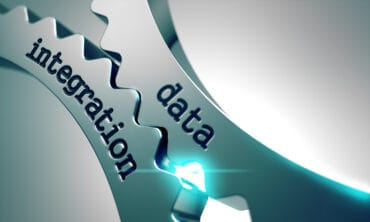
With increasing database complexity, the demand for skilled professionals in areas like AI and machine learning, DevSecOps, cloud computing, microservices, and containerization has never been greater.
Today’s enterprise software systems are critical strategic assets, leveraging vast amounts of information to deliver actionable business insights and competitive advantage. However, with the increasing complexity of the database estates powering them – it’s now much harder to hire and retain skilled staff to manage these systems.
Working effectively across back-end databases to front-end applications requires encyclopedic knowledge. A typical enterprise app using a single legacy database must interact with multiple others, often employing different coding languages. Yesterday’s monolithic software applications have evolved into microservices architectures, compromising smaller, independently deployable services that require individual deployment and understanding.
According to Deloitte, skills shortages are “hampering companies’ ability to pursue new projects” and slowing innovation. In a recent Deloitte survey, 90% of tech leaders said that “recruiting and retaining talent is a moderate or major challenge,” along with a host of issues related to database complexity, scalability, and cost. Today, developers need more skills in more technologies than ever before.
The biggest challenge this poses for businesses is keeping their technology teams up to date with the necessary skills. Here are the specific skills companies should be looking for to close and address the skills gap before it gets out of control.
AI and Machine Learning
Understanding, utilizing, and implementing AI and machine learning technologies will become essential for software engineers. Many experts agree that while AI won’t replace jobs, those who can effectively leverage AI tools will excel. It is important to encourage teams to explore AI by providing access to AI tools and fostering a culture of learning and experimentation. This not only enhances the products we develop for customers but helps boost our engineers’ productivity and understanding of the tech.
It is important to research and select the right tools instead of forcing new ideas into your current tech stack. Explore open-source AI frameworks, like Python for ML services, and utilize online courses to grow AI/ML skills. Allocating time for learning new skills combined with existing business knowledge can yield significant returns.
Additionally, employers could consider government-backed AI Apprenticeships, such as those in the UK, to build skills and future-proof their businesses.
See also: Transformation Drivers: Innovative Data Management Tools and New Skillsets
DevSecOps
With the rise of enterprise-scale SaaS software and elite software delivery practices, applying a security-focused approach is critical for safeguarding systems and data. Software engineers need to integrate DevSecOps practices, technologies, and frameworks into their development lifecycle.
Engineers will benefit from a left-shifted development experience, enabling quick and accurate database changes. With the right tooling and guardrails, coding changes can be made from a single source of trust, allowing for automated tests that catch issues earlier. This approach integrates testing and quality assurance from the start, ensuring defects are resolved early and enhancing release quality.
Security teams should also adopt a holistic view of training and program roll-out, helping users understand the reasons behind these changes. As human error causes most security breaches, engaging users is essential. Security teams should see themselves as enablers, not gatekeepers.
Security by design within Database DevOps can significantly reduce business risk: by not only protecting sensitive data but automating this protection, regulatory compliance is maintained. Tools that provide automated checks and real-time feedback: see the consequences of changes before you deploy them and build feedback loops.
See also: 4 Skills Tech Talent Need to Make Themselves Indispensable
Cloud Computing
People are increasingly adopting cloud computing for database infrastructure due to scalability, accessibility, security, flexibility, and cost. Our survey shows that the percentage of organizations hosting their databases mostly or entirely in the cloud has doubled from 18% in 2020 to 36% in 2023.
Cloud adoption also helps break down silos within an organization. As Platform as a Service (PaaS) becomes more common, the separation between app development and operations disappears. Leaders need to enhance DevOps culture as traditional separate engineering and operations become less relevant.
Familiarity with cloud platforms like AWS, Google Cloud Platform (GCP), and Microsoft Azure is crucial, as they provide valuable onboarding and certification resources. Those platforms often provide excellent onboarding and certification content, allowing engineers to learn at a pace that suits them.
Some of the skills needed here are not necessarily practical ones but analytical: it’s important to understand your needs and what you’re trying to achieve as an organization with cloud migration. This will help answer questions like what data to move to the cloud and how to move it. Understanding your goals and constraints can help with choices like infrastructure-as-a-service vs platform-as-a-service and guide your training needs accordingly.
Microservices Architectures
Understanding and implementing microservices architectures, which consist of a collection of smaller, independently deployable services, is crucial for upskilling.
Organizations must adapt to the rapid changes brought by microservices, which ultimately provide flexibility and speed. The shift requires changes in mindset and skillset. Companies should invest in robust automation pipelines to help teams see the consequences of their actions before publication. This mirrors the skillset shift in DevSecOps, where teams quickly identify issues and accelerate the feedback loop.
Distributed data management is essential in a microservices architecture, but ensuring data consistency can be challenging. Microservices can own its own database, enabling independent scaling and changes to individual services for greater flexibility. There are various microservices design patterns, and Database DevOps teams should embrace their knowledge in this area. Many excellent books and online tutorials are available to introduce the concept.
Containerization and Orchestration
Knowledge of containerization technologies like Docker and orchestration tools like Kubernetes is important for managing and scaling applications. Closely linked to cloud migration, containerization saves computing resources, maintaining efficiency and lower costs. It automates operations, such as scaling to meet demand on busy days or automatically restarting after failures. Ultimately, containerization empowers the database team, reducing dependency on other teams and improving efficiency.
These technologies offer training materials for engineers, but developing technical skills requires strengthening business analysis skills as well. What does the business need? Are we prioritizing security, scalability, or agility? Each focus will demand a different infrastructure and learning requirement.
With increasing database complexity, the demand for skilled professionals in areas like AI and machine learning, DevSecOps, cloud computing, microservices, and containerization has never been greater. Managing modern systems effectively requires a broader skill set to leverage new technologies successfully.





























